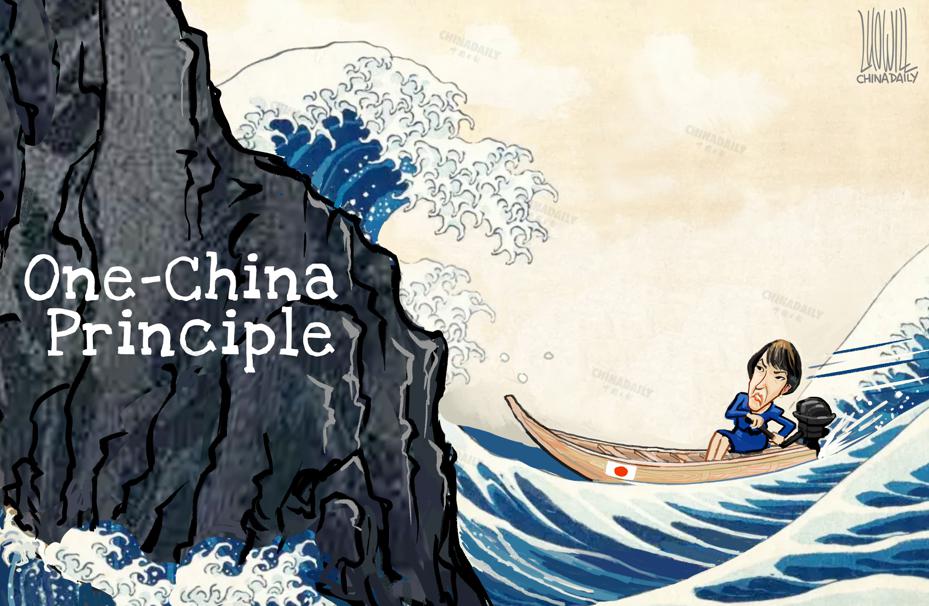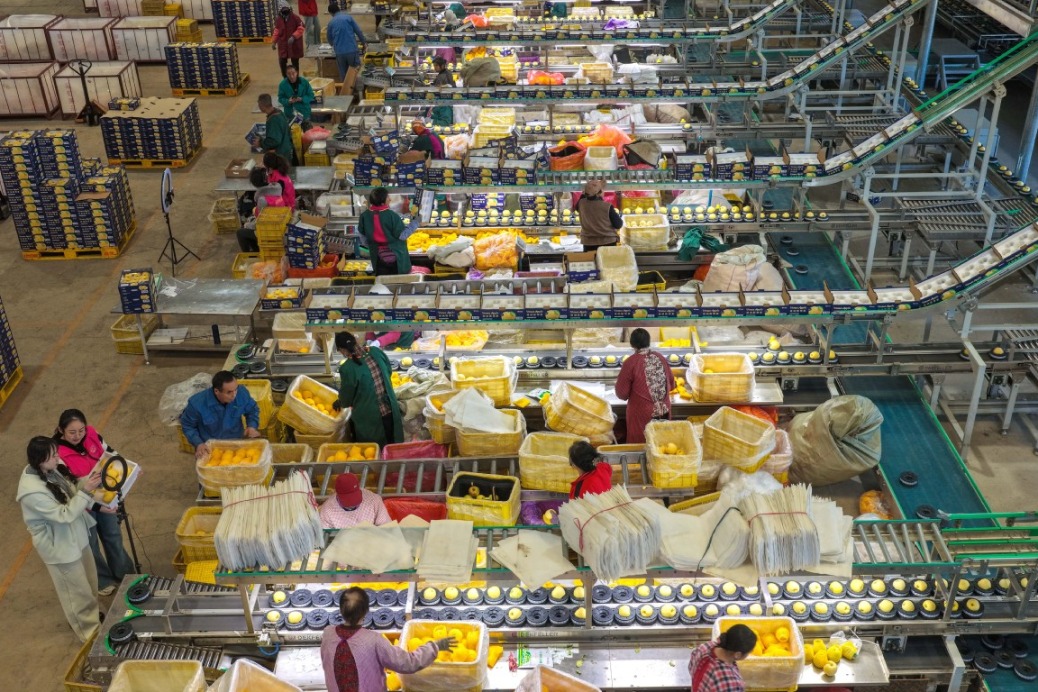Takaichi should retract her words to mend ties


Japanese Prime Minister Sanae Takaichi should apologize to China and retract her irresponsible and provocative remarks on the Taiwan question.
Takaichi, an ultra-right-wing politician even according to Western mainstream media, told a Japanese parliament meeting on Nov 7 that "if there are battleships and the use of force (in the Taiwan Strait), no matter how you think about it, it could constitute a survival-threatening situation".She was referring to the mobilization of Japan's Self-Defense Forces against China's military.
Such offensive words by a Japanese government leader have crossed China's red line and sparked outrage. The Chinese foreign ministry condemned her remarks and lodged a strong protest.
Takaichi declined to retract her remarks on Tuesday, instead calling it "consistent" with the government's "traditional position". However, she expressed that she would be more careful when commenting on specific scenarios from now on. Does that mean she acknowledges having done something seriously wrong or inappropriate? If that is the case, why doesn't she have the guts to apologize and recall her words?
Most government leaders would refrain from answering hypothetical questions, especially on extremely sensitive issues. Playing with the Taiwan question is playing with fire and a provocation to the 1.4 billion Chinese people.
Coming, as it is, from a veteran politician, it is hard to dismiss her statement as an act of carelessness arising from a lack of experience; even more so because it aligns with her long-standing views as a China hawk and an ultra-right-wing politician with revisionist views on World War II and one who is insensitive to the sufferings people in neighboring countries underwent because of Japanese atrocities.
Takaichi has made multiple trips to the Yasukuni Shrine — which glorifies Japan's wartime militarism by honoring war criminals, including 14 convicted Class-A criminals — even in her capacity as cabinet minister in the past. Such moves are deeply offensive to people in China, on the Korean peninsula and in several other Asian nations.
She has even criticized apologies offered by former Japanese prime minister Tomiichi Murayama, who passed away last month, and former Japanese chief cabinet secretary Yohei Kono for the crimes committed by the Imperial Japanese Army, including on the comfort women issue. She calls Japanese textbooks on Japanese war crimes "extremely self-deprecating" and believes terms such as "comfort women" and "forced labor" should be used less. She has challenged the death toll figure in the 1937 Nanjing Massacre, in which the Imperial Japanese Army killed 300,000 Chinese people, including many women and children.
Such revisionist views should alarm not only people in East Asia, but also in Europe, North America and other parts of the world.
Takaichi is a member of the Nippon Kaigi, a farright ultraconservative organization that is trying hard to reinterpret Japanese history and change Article 9 of the Japanese Constitution which forbids the use of force as a means of settling international disputes. That is probably why she has refused to apologize to any of Japan's Asian neighbors for WWII atrocities committed by Imperial Japan.
When it comes to a serious reflection on war crimes, Takaichi would do well to look up how consecutive German leaders after WWII have handled Germany's war history.
Given that she cites Margaret Thatcher as her role model, she should know that it was during Thatcher's tenure that China and the United Kingdom signed the agreement for Hong Kong's return to China. That should inspire Takaichi to refrain from thinking and behaving as if the Taiwan island were still a Japanese colony, as it was before 1945.
Takaichi might have been emboldened by the recent visits and meetings with some US government officials. However, US President Donald Trump did not particularly throw his weight behind her in an interview aired on Nov 10.
A good bilateral relationship will benefit both countries, which are neighbors and each other's major trading partners. That requires Japanese leaders to be sensitive to the feelings of the Chinese people and refrain from making irresponsible and provocative remarks.
Takaichi should apologize, retract her words and state by herself, not through her diplomats, that there is only one China and Taiwan is part of China.
The author is a China Daily columnist.


































